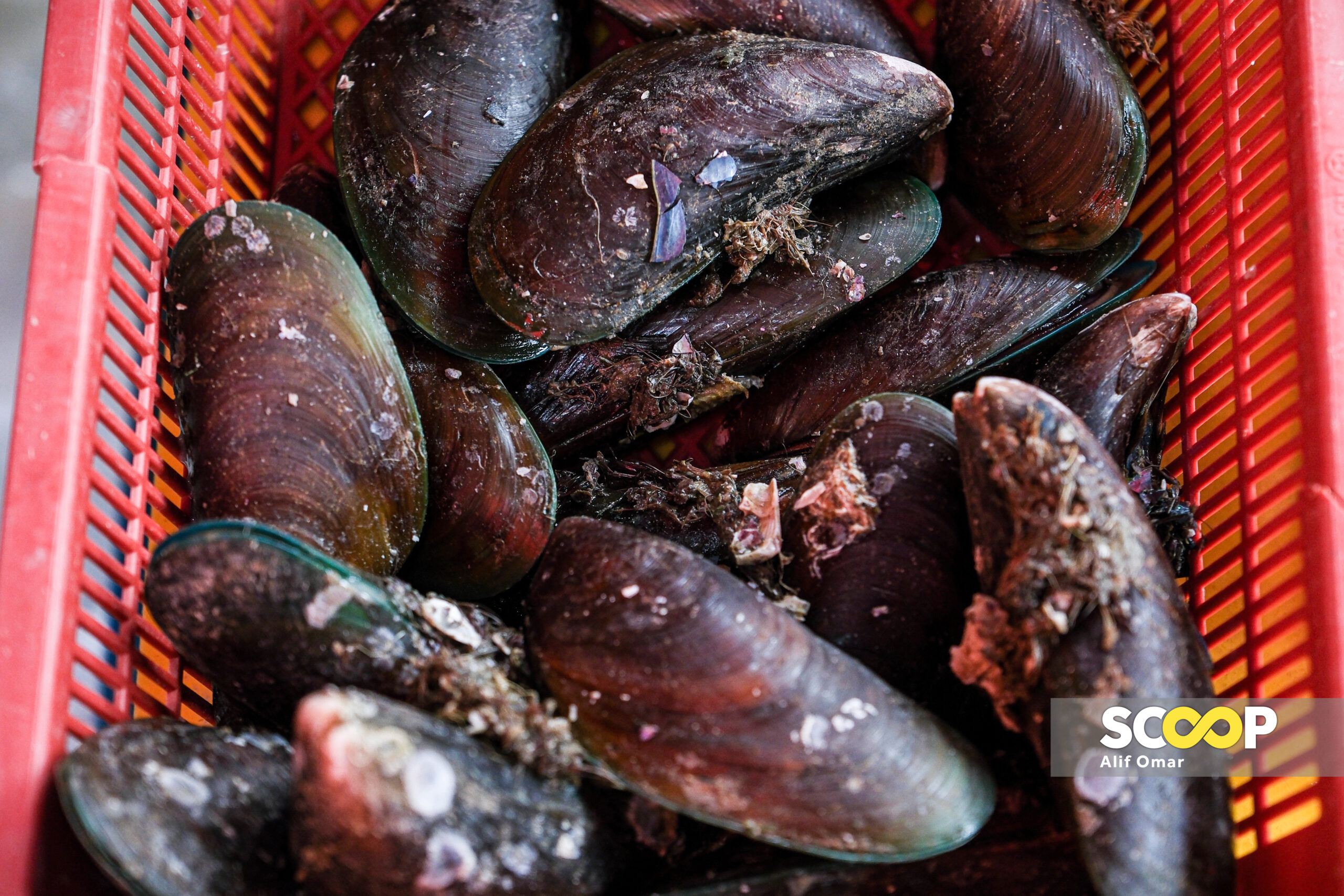KUALA LUMPUR – Medical experts have warned the public regarding the consumption of bivalves in the wake of recent food poisoning cases involving mussels in Port Dickson.
Speaking to Scoop, Dr P. Paramasundari, a medical practitioner from a health clinic, said the food poisoning cluster in the popular destination could potentially be from a shellfish toxicity outbreak.
She said, apart from mussels, other shellfish such as clams, oysters and scallops that carry biotoxins produced by toxic algae could lead to paralytic shellfish poisoning (PSP).
“Marine water has many types of algae that produce biotoxins that are not harmful to fish and bivalves.
“However, they could affect humans, and it’s difficult to know how many biotoxins they carry. A certain level (of biotoxin) could indeed cause food poisoning,” the doctor said.
Asked about the symptoms of PSP, she said they depended on the bacteria contained in the bivalves.

The way the bivalves are cooked is also a factor, she said.
“Some (infections) give mild symptoms such as vomiting, diarrhoea and stomach cramping if the shellfish are undercooked.
“While some toxins will lead to severe infections that cause immediate reactions such as numbness in the hands and mouth, shortness of breath and swelling in the mouth and eyes.”
The effects on the central nervous system and respiratory system could be more severe in PSP when compared to other types of food poisoning, she added.
However, she said that the type of bacterial infection could only be determined from the laboratory test results on the shellfish.
Some PSP cases are curable through hydration treatment for food poisoning, while others could even be fatal, said Dr Paramasundari.
‘Seek medical advice after consuming mussels from Port Dickson’
Meanwhile, Dr Siti Aisah Mokhtar, a virologist from Universiti Putra Malaysia, advised those experiencing similar symptoms after eating mussels from the affected area to notify their healthcare provider and seek immediate medical attention.
She said this was essential in order to guarantee adequate treatment and support.
“Currently, we still cannot draw any conclusions about the current situation because the investigation is ongoing.”
“There could be multiple reasons behind the outbreak. For this reason, they (the Health Ministry) must conduct research,” she added.

Dr Siti said it was crucial to identify the source of the outbreak, adding that in order to carry out the preventive measures, the diagnosis must be accurate.
This comes after eight cases of food poisoning were reported in Port Dickson on Tuesday. Authorities later confirmed that the cases were due to the consumption of mussels harvested from the area.
Among the victims, two experienced severe symptoms such as paralysis, five cases involved normal treatment, and one received outpatient care, said Negri Sembilan Health Department director Datuk Dr Harlina Abdul Rashid.
Earlier today, the results of the Kuala Lumpur Fisheries Biosecurity Centre’s laboratory analysis found that there were harmful algae that had contaminated mussels in Port Dickson’s waters, rendering them unsafe to eat.
The Fisheries Department’s director-general for management, Wan Aznan Abdullah, said water samples and mussels in the waters were contaminated with biotoxins, as well as the harmful Prorocentrum, Alexandrium and Pseudo-nitzschia algae species. – April 5, 2024


